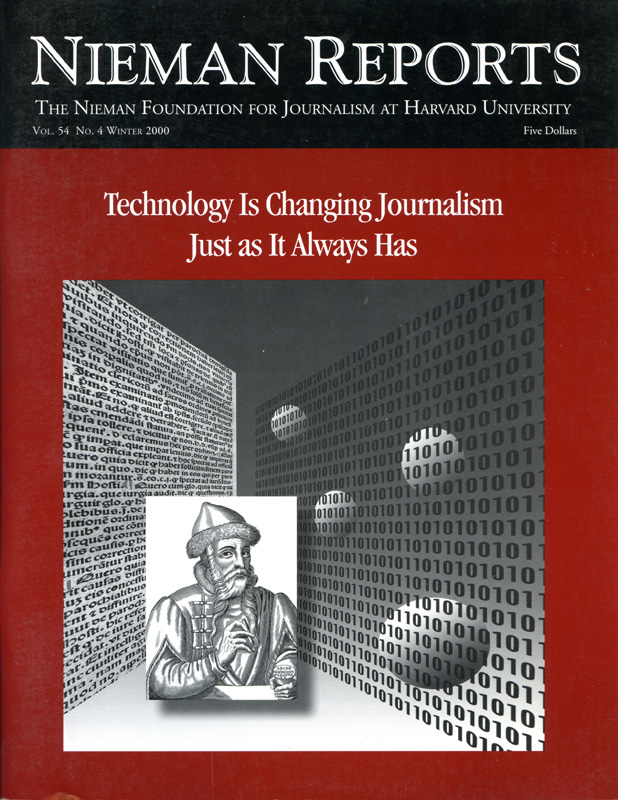RELATED ARTICLE
“Needed: Help From Journalism Schools”
– Anders GyllenhaalJournalism education and the continued training of news media professionals are affected profoundly by the massive growth of the Internet and the various digital technologies mushrooming around it. It is a rolling thunderstorm of change that both the universities and the mass media practitioners are riding, sometimes uneasily.
In the United States, many journalism schools have broadened their offerings to include course work involving the latest technologies. A good number of multidisciplinary schools of communication and information appeared a decade or more ago, often comprised of traditional journalism departments affiliating with or creating other units.
Overseas, universities in Poland, Bosnia-Herzegovina, Russia, Spain and Latin America are determined to use the Internet and the digital technology as a centerpiece in modernizing their curriculum and training. In many instances, they see the Internet as a way of accessing the books, training materials, and latest advances in journalism and mass media that they cannot otherwise afford. At the University of Sarajevo, where Rutgers has a joint program, many of their library resources were destroyed in the war, so a computerized linkage to the world is even more essential. With more than 5,000 newspapers worldwide now offering online editions, the Internet is an essential link for scholars and students studying journalism. The Web sites of MSNBC, CNN, CBS and ABC provide a living laboratory of converging multimedia. During my recent lecture tour at Russian universities in St. Petersburg, Novgorod and Yekaterinburg, the journalism schools were determined to put new media and the Internet at the forefront of our meetings with students and faculties.
There is a constructive role that universities can and ought to play in determining the future direction of journalism on the Internet. Faculty and students can research what works and what fails in this new era of communications and do applied projects with the news media. By joining forces, scholars and practitioners can explore some of the vital questions that are raised by the emergence of this new media. How do members of the public decide where they will get their news, for example, in choosing among Internet news sites and newspapers? How are they reallocating the time they spend consuming news? How can newspapers combine their print activities with digital technology to enhance the news experience for consumers? How is television using the Internet? Can this younger, digital generation find reasons to read newspapers or watch news on TV?
Such research, conducted by students, would be a valuable learning tool for them and a critical source of information for those already in the business. By using this approach of collaborative investigation, even the smallest daily or weekly could engage in this essential exploration.
The agenda for journalism education in this digital era demands imagination, not just a linear adjustment to new technology. The digital age of the Internet is still in its infancy and both professional journalism and the academy must work hard together to see that the new technology reaches a mature and productive adulthood.
Jerome Aumente, a 1968 Nieman Fellow, is distinguished professor emeritus and special counselor to the dean, School of Communication, Information and Library Studies, Rutgers, the State University of New Jersey. ©Jerome Aumente 2000.



